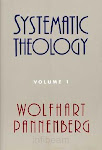I prefer English grammar to Finnish grammar. Finnish, as a language, is more rigid and its vocabulary is narrower. I'm sure a Finnish philologist -- someone who remembers the one million grammar rules -- might disagree. I like English's versatility. Commas, for instance, may be placed almost wherever one wants. In places where one takes a natural break. In Finnish, on the other hands, there are fixed rules. Certain words must, by default, always be followed by a comma, no matter whether there's a natural pause or not.
You might remember this example that well illustrates the power of commas in English. The two sentences are exactly the same, except for the location of the commas. And yet somehow their meanings are perhaps slightly different.
1. Woman, without her, man is nothing.
2. Woman without her man, is nothing.
3 weeks ago







5 comments:
Isn´t it more narrow than narrower;))
oli pakko vaikken oo ees varma!!! t.kielipuoli heidi
It is indeed. I am forced to leave it as it is and not edit it, otherwise I'd have to delete your comment to destroy the evidence. ;-)
Forever Finglish,
Jason
But in Finnish you can alter the word order without changing the meaning of the sentence. It's great if you like writing poems. This is my favorite example:
Minä rakastan vain sinua.
Minä vain rakastan sinua.
Vain minä rakastan sinua.
Jussi your example is totally contrary to your point, in the example the meaning changes with the word order! An example of what you were saying would be:
Pihalla on mökki
Mökki on pihalla
On mökki pihalla
On pihalla mökki
Pihalla mökki on
Mökki pihalla on
although there are differences in emphasis
No no, it's like this:
Punainen mökki on pihalla.
Mökki on punaisella pihalla.
See? Finnish is great. The meaning stays the same. ;-)
Post a Comment